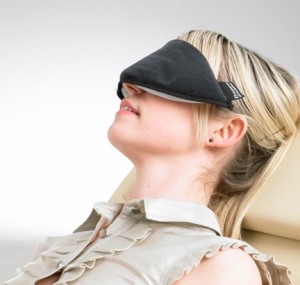At BUS, we hear a lot of stories about the difficulties patients with Birdshot have in getting the right medication prescription from their GP. Many of us with Birdshot have complicated medication regimes – the doses tend to change if we are in flare up or remission, and the actual type of medication may change quite frequently, if we are not responding to our current medication regimes. The other issue we face is that many of the medications we use come in branded and generic forms. So, for example, for those of us on cellcept, this now comes generically and many of us are now using a different brand, (for example Myfenax,) rather than Cellcept, although they are both mycophenolate mofetil. A GP may be keen to issue us with the generic form of our medication, as it is often cheaper and often just as effective. However for some types of immunosuppressants, the generic form is different and has a different effect. Your consultant and possibly your pharmacist will know this, but your GP may well not know.
Communications between the consultant and the GP is never very speedy and often we are faced with having to tell our GP ourselves that the medication regime has changed. This leaves the GP in a difficult position, as the medication regimes are quite toxic, often expensive and the GP is not an expert on immunosuppressants, although should have much more knowledge on steroids. But, do remember that the GP takes responsibility for not over-medicating us and for giving us the appropriate medication; and when we get a prescription from the GP, our medication costs (for those of us using NHS medications) come out of the GPs budget (or the budget of your local Primary Care Trust), and not the hospital. It is really, really important to make sure that you get your consultant and GP to communicate well to avoid any difficulties. One way of doing this is asking your consultant to give you a formal note that you can take to your GP which specifically states any changes in medication, the dosages and whether they need to be branded or the generic forms will do. Another way is by making sure you see the same GP each time and build a relationship with him or her. And, of course, it is really important that we understand the medication regimes ourselves and the implications of them, so we can help guide our GP.
Just to illustrate how difficult it can be, we are sharing with you a couple of stories from our members (if anybody else has similar stories or stories about their difficulties, do let us know):
Real Ale’s story:
“Having had Neoral (Ciclosporine) added to his Cellcept, because of a flare up after his cataract operation, Real Ale went to his GP for a repeat prescription of the drug. In his efforts to save money the GP prescribed the generic form of Ciclosporine, not realising that could cause a problem. Fortunately the friendly, sharp eyed pharmacist rang Real Ale and queried whether it should be the generic form, pointing out that Ciclosporine was one of those rare drugs that once you have started with a particular brand, you should always continue with the same brand, unless you are deliberately switched. This meant that Real Ale had to go back to the Hospital pharmacy to confirm this was indeed correct. Different brands of ciclosporin have different rates of absorption of the active ingredient which is one reason for taking the drug at specific times. Real Ale’s pharmacist told him to put this advice in writing to his GP and requested a copy was sent to the pharmacy for future reference.
The second story concerns another patient with a similar issue about lack of communications. This time the dose of ciclosporin was being reduced but the GP was not informed and continued to prescribe the wrong strength. Ciclosporin capsules are not something you can break in half to take so this meant a trip back to the hospital to collect the repeat prescription as the GP refused to prescribe it, in the absence of notification from the consultant.
These stories highlight how difficult it can be to have a rare disease that fluctuates and is treated with toxic and expensive medication that is often outside of the experience of the GP. Hence the need to keep the GP properly informed, and to help guide the GP. We are also copying an article below about the pressure placed on GPs to the costs of medications they prescribe (hence the need for us to keep our GPs informed about our rare disease, its fluctuating nature and our need for different medication regimes at different times):
‘GPs are being banned from prescribing high-cost drugs approved by NICE as NHS managers seek drastic savings on prescribing budgets’.
This story was in this week’s Pulse (the professional journal for GPS). It’s about the cuts that certain PCTs are making by creating a banned drugs list to save money. It includes enteric coated prednisolone. What is really important to remember is that we have a RARE DISEASE which SHOULD fall outside of the scope of NICE (NICE is the National Institute of Clinical Excellence and decides on what medications can be used on the NHS) – for those of us with rare diseases, we SHOULD get more flexibility than the NICE guidelines – yet another reason for ensuring your consultant communicates well with your GP and that you build up very, very strong relationships with your GP, your consultant and your pharmacist. Do let us know if any of you are having problems – the more evidence we have, the more able we are to approach the ‘authorities’ such as NICE and the organisation that deals with rare diseases – AGNSS (the Advisory Group for National Specialised Services).
Rea and Annie

